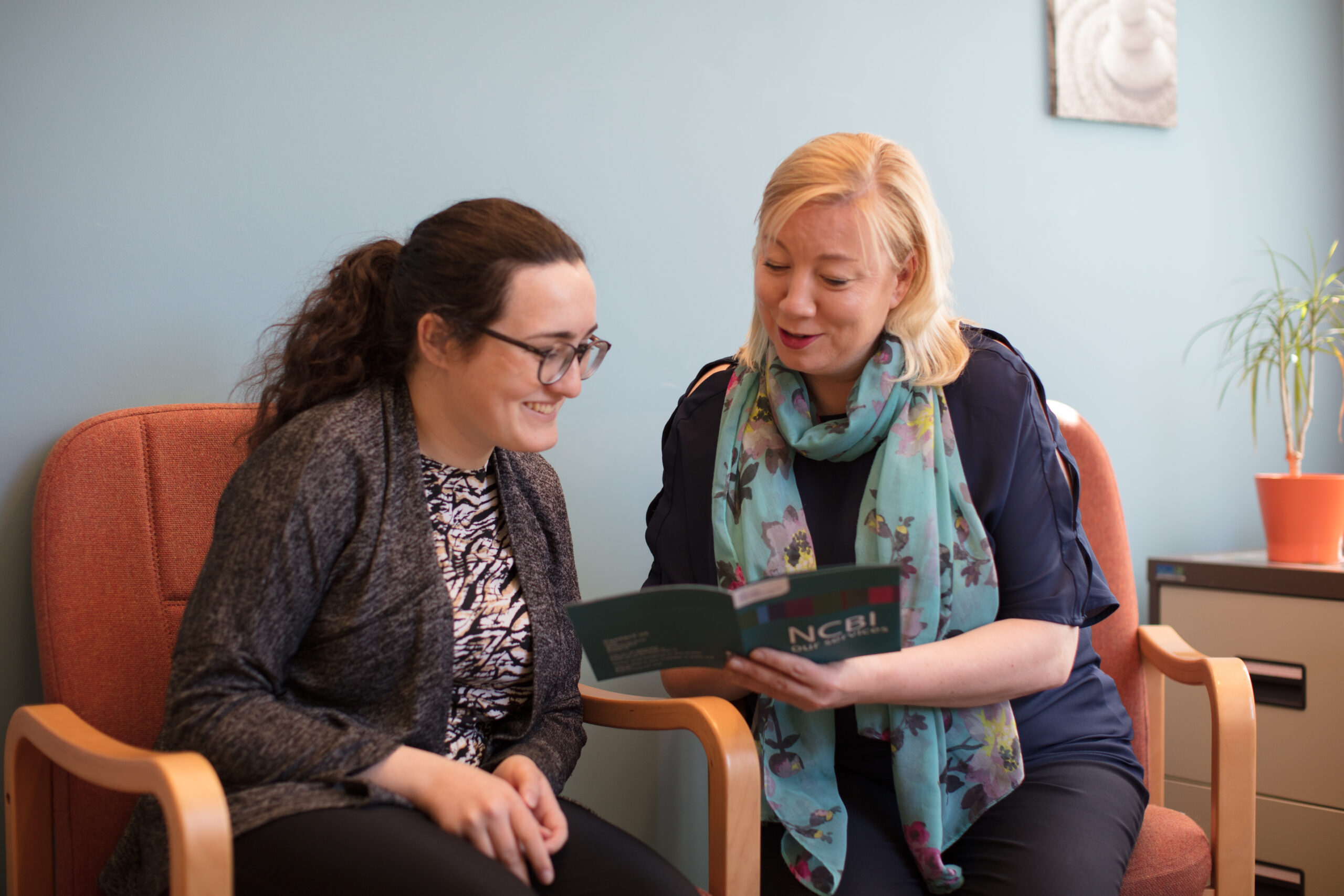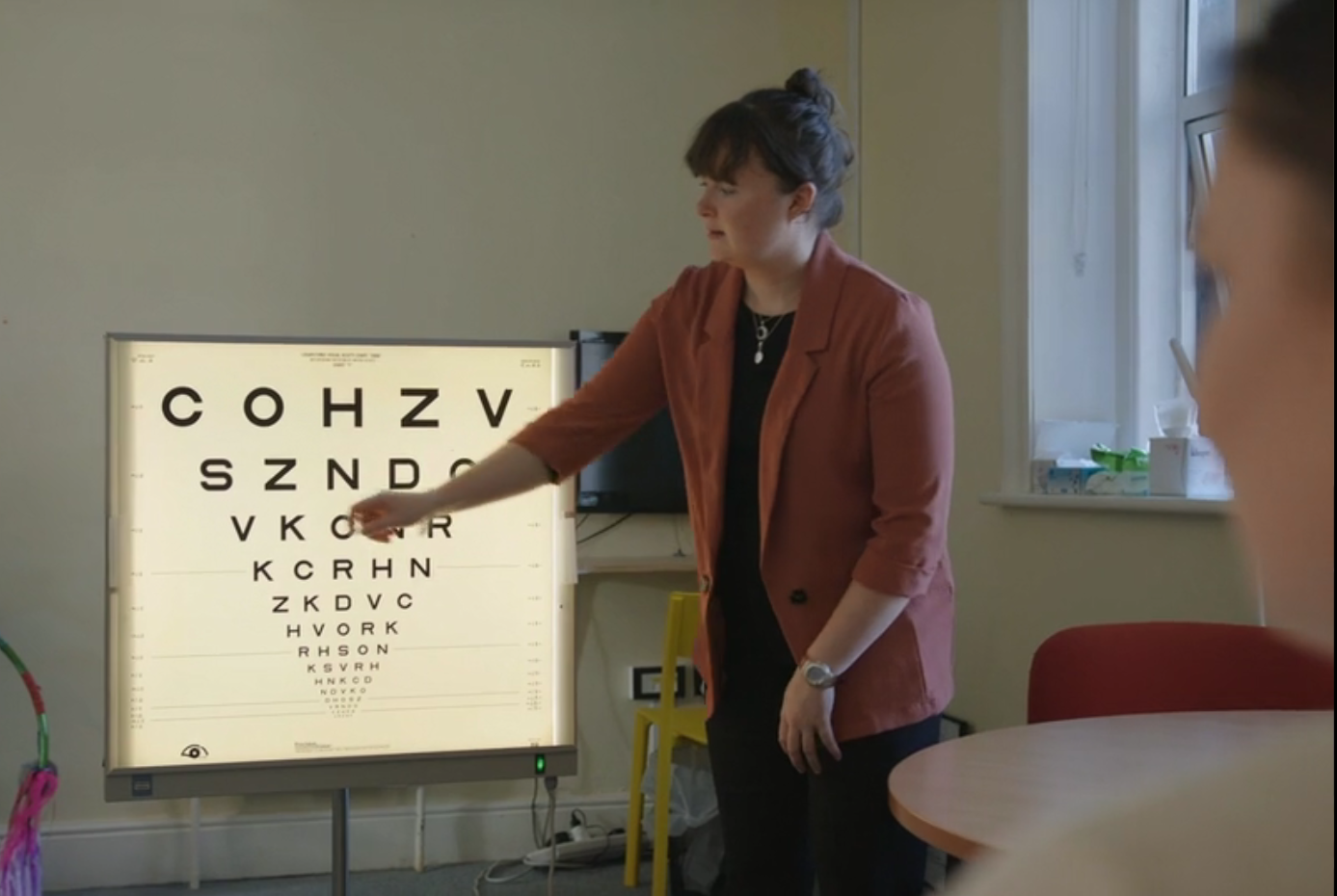General Introduction About Sight Loss
Sight loss can affect anyone, and its implications can have an impact on all aspects of life.
Vision impairment occurs when an eye condition affects the visual system and one or more of its vision functions. This has serious consequences for an individual but many of these consequences can be mitigated by timely access to quality eye care and rehabilitation.
If you, or someone you know, has recently been diagnosed with sight loss, our website can assist you with information regarding different eye conditions, strategies and resources for improving quality of life while living with sight loss, and the facility to refer yourself or someone you know into our services.

Terminology
Here’s a list of some terminology commonly used.
- Referral: the act of directing someone to a different place or person for information, help or action. At NCBI we often get referrals from health professionals, GPs, eye care professionals, family members or the person can refer themselves to the service.
- Visual Acuity: a simple, non-invasive measure of the visual system’s ability to discriminate two high contrast points in space.
- Intervention: the action of becoming intentionally involved in a situation in order to improve it or prevent it from getting worse.

Referral – The NCBI Adult Services Series
NCBI’s Adult Services Series is a collection of three short videos which explain the entire process for healthcare professionals to refer their patients to NCBI. The series covers how to refer a person, the assessments that take place once a person is referred to NCBI, the services available from NCBI and more.
Categories of Vision Loss
When you are referred to NCBI you will complete a functional vision assessment with one of our Community Resource Workers (CRW) to assess level of residual vision.
During this assessment your visual acuity will be measured using a vision chart at a fixed distance, which will classify your vision loss and allow your CRW to identify potential areas for intervention.


Types of Vision Loss
Vision loss can take multiple forms affecting different parts of the eye and how you see the world.
Understanding Your Diagnosis and Emotional Support
Being newly diagnosed with sight loss can be a difficult and emotional time for a person. At NCBI we want to support people with sight loss from diagnosis onwards, by educating the person on their eye condition, and providing assessment and interventions through our services.
NCBI can assist a person with sight loss to process a recent diagnosis through our face-to-face counselling and telephone counselling services.
Telephone Counselling
This service allows you to speak to a professional counsellor or a peer counsellor (someone who also has sight loss themselves) over the phone from the comfort of your own home.
To avail of our counselling services please make a referral by clicking on the button below or call 1800 911 250.
Face-to-Face Counselling
Through this service, we can address issues such as your reaction to your diagnosis, fears you may have if your sight is deteriorating, the future, change in your sense of identity, relationship difficulties and employment issues. Our counsellor will work with you and / or your family, offering a supportive and non-judgemental environment in which to explore these issues.
ECLO – Eye Clinic Liaison Officer
On visiting your eye clinic or ophthalmologist you may be introduced to one of our ECLO staff.
The Eye Clinic Liaison Officer service provides practical and emotional support to both patients and their families to meet their needs and empower independence from the point of diagnosis. The ECLO works closely with clinical teams and acts as a bridge between acute and community-based support services.
The ECLO service is currently available in the following Dublin hospitals: Mater University Hospital, Royal Victoria Eye and Ear Hospital, CHI at Temple Street and Crumlin Children’s Hospital as well as Cork University Hospital, Cork.
Insights into an Unsighted World – Audiobook
Insights into an Unsighted World is a highly useful publication written in an informative, warm and engaging manner. Robert Thompson has included several important pointers and tips for the sighted community, which will surely help to create awareness about the potential difficulties people with sight loss may face when out and about.
Listen the audio book